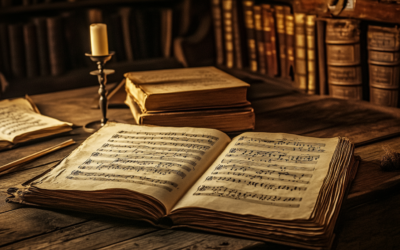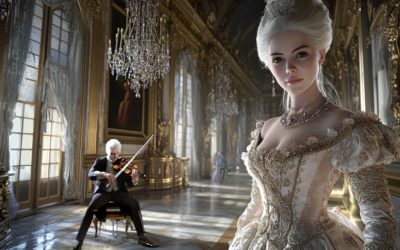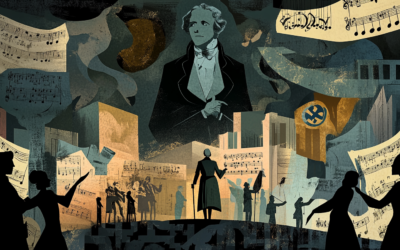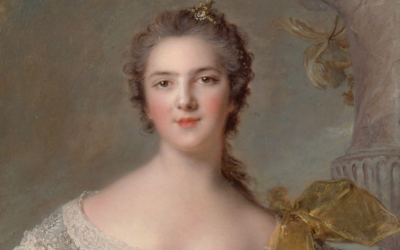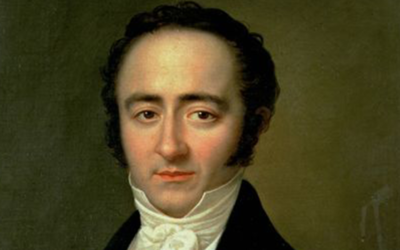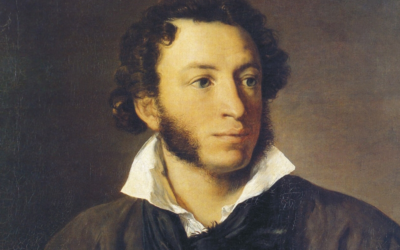Wolfgang Amadé Mozart
The Visit to Verona: A Tenuous Introduction to Italian Nobility
In Verona, young Wolfgang Mozart impressed the local nobility, but the reality behind the scenes reveals a carefully managed public image, where strategic networking and curated praise played key roles in shaping his growing reputation.
Mozart in Italy: The Untold Story
Was Mozart truly a solitary genius, or was he merely the instrument of his father’s ambition? “Mozart in Italy” challenges the conventional narrative, revealing a complex dynamic between father and son that shaped the course of music history. Prepare to question everything you thought you knew.
“Leopold Mozart, ever the strategist, ensured that Wolfgang's performances in Verona were not only memorable but meticulously documented, securing the praise necessary to bolster his son's reputation across Italy”
Mozart in Italy
The Mozart family’s journey to Italy in late 1769 was marked by careful planning and strategic networking, with the ultimate goal of showcasing Wolfgang’s talents to the highest circles of European society. Their stop in Verona, beginning on December 28 or 29, 1769, was no exception. Here, they navigated the complexities of social introductions and sought to establish their presence in the Italian cultural scene.
Strategic Introductions and Initial Impressions
Before leaving Rovereto, the Mozarts secured crucial letters of recommendation from local nobility, including Baron Giovanni Giulio Pizzini and Count Domenico Antonio Lodron. These letters were essential for gaining access to the influential circles of Verona and beyond. Lodron, recognising the importance of these introductions, presented Leopold as the “Maestro di cappella” to the Archbishop-Prince of Salzburg and Wolfgang as a prodigious talent “approximately 13 years old,” despite the fact that Wolfgang was nearing his 14th birthday.
Upon arrival in Verona, the Mozarts were immediately immersed in the city’s rich cultural atmosphere. Contemporary travel guides describe Verona as an ancient city with deep historical roots. It was also a fortified city, boasting impressive military architecture alongside its cultural landmarks. However, despite its grandeur, Verona was not immune to the typical challenges of securing performance opportunities for young Wolfgang.
The Long-Awaited Academy
Leopold’s letters home reveal that it took a full week for the Veronese nobility to organize a suitable event for Wolfgang to perform. This “academy” or concert, held on January 5, 1770, was not a solo recital but a gathering of musicians, poets, and local elites. These academies were more social than artistic, characterized by a mix of conversation, music, and the display of wealth and fashion by the attending nobility. The Veronese society, still untouched by the more moderate English tastes that would later influence European fashion, was known for its lavish and colourful gatherings.
The event itself was a typical 18th-century social affair, with various musicians and performers taking turns to entertain the assembled guests. Wolfgang’s role in the evening was significant but not singularly dominant. He performed a symphony of his own composition and played a harpsichord concerto at sight, impressing the audience with his skill. However, it was clear from the accounts that the evening’s success was shared among several performers, with Wolfgang’s contributions being part of a broader program.
The Reality Behind the Praise
Leopold, always mindful of his son’s public image, made sure to send back positive reports of their time in Verona, emphasising Wolfgang’s success. He noted that poets vied to compose verses in Wolfgang’s honour and that even the city’s officials and clergy were taken aback by his talent. Yet, it is essential to recognise that these reports, as was common at the time, were carefully curated to enhance Wolfgang’s reputation. The press coverage of the event, likely influenced by Leopold, echoed the hyperbolic praise often found in periodicals of the era, where glowing reviews were sometimes purchased rather than earned.
While the academy in Verona did add to Wolfgang’s growing reputation, the reality was that his performances, though impressive, were part of a larger cultural tapestry. The praise he received, while genuine in part, was also the result of Leopold’s relentless efforts to shape the narrative surrounding his son.
You May Also Like
The Kolb Concerto: A Mozartian Mirage?
The Kolb Concerto’s dubious origin and poor musical quality expose yet another myth in the Mozartian canon. If this is the work of a genius, then perhaps we’ve been fooled for centuries.
The Adélaïde Deception: Mozart’s “Lost” Violin Concerto and the Art of Musical Forgery
In the early 20th century, the “discovery” of Mozart’s sixth violin concerto in Paris created a sensation. Dubbed the Adélaïde Concerto and supposedly written for Madame Adélaïde of France, it was hailed as a testament to Mozart’s genius. However, as the story unfolds, it becomes clear that this masterpiece was not the work of the child prodigy but rather a carefully orchestrated hoax by Marius Casadesus. Despite its unmasking as a forgery, the concerto continues to captivate audiences, raising questions about authenticity and the music industry’s willingness to deceive for profit.
Mozart and the Nationalist Illusion: The 1931 Festival and Its Legacy
The Salzburg Festival, far from being a mere celebration of Mozart’s genius, was born out of nationalist ambitions during a turbulent period in Austro-German history. Conceived by figures like Max Reinhardt, Heinrich Damisch, and Friedrich Gehmacher, the festival was deeply rooted in ultranationalistic ideals, transforming Mozart’s legacy into a tool for cultural dominance. The truth behind its founding has long been obscured, but the primary sources tell a different, darker story.
K.6 and K.7 Sonatas: A Fabricated Genius?
The earliest sonatas of Wolfgang Amadeus Mozart, K.6 and K.7, are traditionally seen as proof of his precocious genius. But as we explore the murky origins of these works, we find that they may be more a product of Leopold Mozart’s ambition than Wolfgang’s musical talent. The truth, as always, lies somewhere between the notes.
Georg Nissen and the Missing Notebooks – Part II
This second part delves deeper into Georg Nissen’s scheme to expose the truth about Mozart’s death, and the roles of Constanze Mozart and her sons in keeping it buried. As new details emerge, the mystery surrounding the famous composer’s final days grows even darker, with powerful forces potentially at play.
Mozart and Salieri
Pushkin does not see Salieri as a mere mediocre. In fact, Salieri embodies the struggle of the artist, much like Michelangelo, who reaches greatness through relentless effort. Pushkin himself identifies with both Mozart and Salieri, but he emphasises that true art demands work, discipline, and sacrifice. In poisoning the Mozartian element within himself, Salieri performs a service to art, freeing it from the frivolity of effortless genius. ‘Can genius and malice coexist?’ Pushkin’s answer is complex, but in the end, Salieri’s act seems to affirm that true creation lies in the hands of those who strive.


